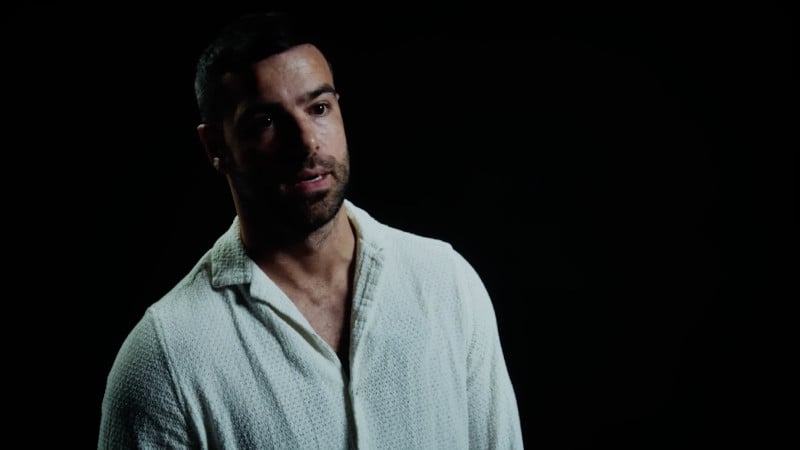
Mr. Harrington’s Phone is now streaming on Netflix.
Mr. Harrigan’s Phone is an old-fashioned, almost-gothic ghost story, and based on a Stephen King short story, it’s exactly the kind of scare we need in time for Halloween, right? Well, it would be… if it was any good. Instead, Mr. Harrigan’s Phone squanders its intriguing setup to tell a limp, ineffective cautionary tale through the lens of a supernatural thriller. Even its modern twist feels more like a one-note lecture about our addiction to smartphones.
What’s worse is that this potentially terrifying tale does almost nothing of any horror value throughout its overly long runtime. There are no jump scares, no dream sequences, no monsters, no gore, or anything remotely resembling a hefty-enough scare to warrant calling this a horror film. Instead, director John Lee Hancock spends an hour and 45 minutes meandering around a half-baked moral lesson that tells us two things: smartphones are bad, and killing people is also bad. Perhaps I’m over-simplifying… but not by much.
The saving grace is the heart-warming friendship between the enigmatic Mr. Harrigan (Donald Sutherland) and Craig (Jaeden Martell), a young boy who takes a job reading novels to the aging billionaire three times a week. Things get more interesting, albeit briefly, when Harrigan dies, and Craig begins to realize that he can still communicate with his dead friend via a smartphone that was buried with him. It’s a strangely intriguing concept, isn’t it? Sadly, it never really goes anywhere.
Sutherland plays Mr. Harrigan with a mysteriousness that leaves you wondering whether he’s a good man or something else entirely, and this would work incredibly well if it actually paid off in any way. But Mr. Harrigan himself remains as inert as the film’s script, removing any hint of dramatic tension in favor of a rather pedestrian tale of friendship. Equally, Martell works well as Craig, a young man who just wants to find out where he fits in the world. Of course, you’ll recognise him from Stephen King’s It – a far more horrific adaptation. Here, he juggles an over-sentimental script with grace while trying to inject his flaccid lines with some sense of urgency. Unfortunately, it never quite works, and the film soon becomes a coming-of-age story rather than any kind of horror or supernatural thriller.
Startlingly, those elements work rather well, though. Mr. Harrigan’s Phone gives us a glimpse into teenage life during a very specific time period, during the rise of the cellphone and specifically, the release of the first iPhone in 2007. It’s a quaint look at how smartphones changed the cultural landscape – not just technologically. The impact of the smartphone on Craig’s high school social circles is felt immediately, and we see both positives and negatives as the young boy teaches Mr. Harrigan to use one himself.
But where’s the urgency? The threat? The tension? Even as a drama, Mr. Harrigan’s Phone limps idly towards the finish line, with little to say and a long time to say it. The promising premise could have offered a tense, creeping slow-burn as we tackle the reality of Craig’s situation. After all, a dead friend calling you from beyond the grave should be terrifying. But it just… isn’t. We should be faced with the slow untethering of a young man who realizes the gravity of what he’s doing – especially when his enemies begin to turn up dead. But Craig’s predicament lacks any real punch, and with zero scares either, it’s just another instance of how Mr. Harrigan’s Phone stops short of giving us any kind of satisfying or compelling storyline.
There’s very little substance beneath what’s essentially nothing more than a coming-of-age vignette.
As far as adaptations go, Mr. Harrigan’s Phone feels every bit like a short story that’s been stretched out into a feature film. There’s very little substance beneath what’s essentially nothing more than a coming-of-age vignette. Where Hancock could have taken the premise and pushed it further, instead he stops wildly short.
Along with its overly lean storyline, the slick-yet-sedate visuals offer little. Harrigan’s home comes close to being interesting, the ancient New England mansion providing the old-world charm you would expect of an aging magnate. However, this too is a missed opportunity. What could have been a stirringly creepy backdrop to a supernatural horror simply remains just a house. Much like the film itself, it’s ultimately empty.
Mr. Harrigan’s Phone is an annoyingly lifeless Stephen King adaptation that squanders an intriguing setup. Taking any potentially interesting, scary, or emotional moments and rendering them banal, director John Lee Hancock manages to sabotage the potential for ghostly scares by sidestepping a barrage of dramatic opportunities. In the hands of a more daring filmmaker, Mr. Harrigan’s Phone could have been the jumping off point for a story that gets to grips with how modern life can be so scary. Unfortunately, no risks are taken whatsoever, resulting in a decidedly pedestrian drama with incredibly low stakes. The one thing you really have to admire is Mr. Harrigan’s cellphone reception.






